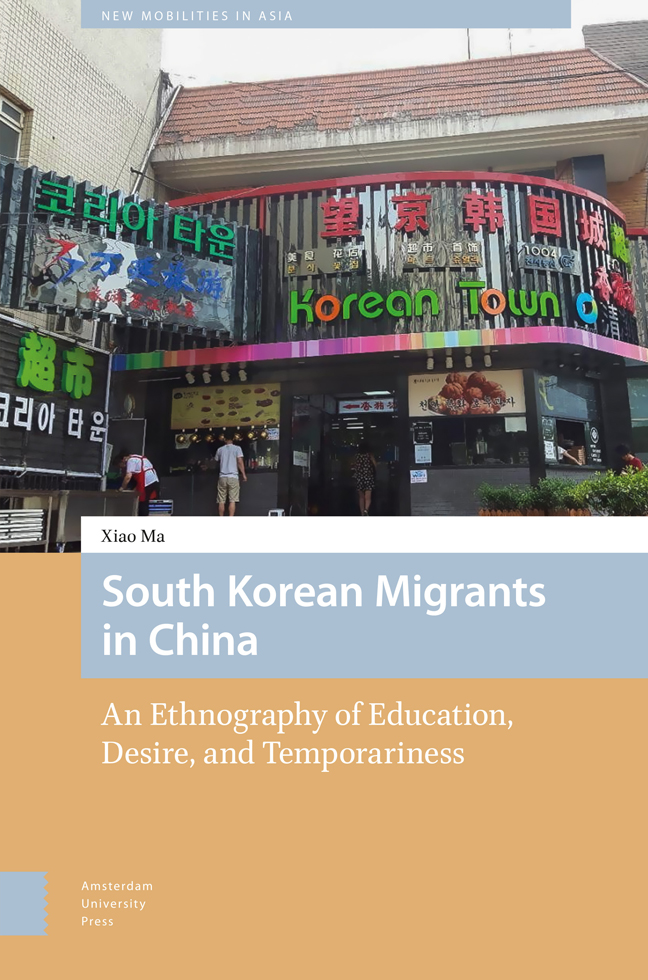Book contents
- Frontmatter
- Contents
- List of Illustrations
- Acknowledgements
- 1 Introduction
- 2 Temporary Residents’ Community in Beijing
- 3 The Internationalised Education of China and the Globalised Education of South Korea
- 4 Educational Desire in School Choice: Identities of Home, Destination and the World
- 5 Desirable Homecoming: The Pursuit of Tertiary Education in the Context of Temporary Migration Regimes
- 6 Internationalisation in Chinese Education: The Quest for Entry to a Top Chinese University
- 7 Conclusion
- Index
1 - Introduction
Published online by Cambridge University Press: 26 March 2024
- Frontmatter
- Contents
- List of Illustrations
- Acknowledgements
- 1 Introduction
- 2 Temporary Residents’ Community in Beijing
- 3 The Internationalised Education of China and the Globalised Education of South Korea
- 4 Educational Desire in School Choice: Identities of Home, Destination and the World
- 5 Desirable Homecoming: The Pursuit of Tertiary Education in the Context of Temporary Migration Regimes
- 6 Internationalisation in Chinese Education: The Quest for Entry to a Top Chinese University
- 7 Conclusion
- Index
Summary
Abstract
This chapter frames the central questions and key concepts that this book aims to examine. First and foremost, migrant education is regarded as a lens through which to assess South Korean migrants’ socio-political positionality in China. I adopt ‘in-between’ as an analytical framework to elaborate on the subjective and structural aspects of this positionality. Furthermore, ‘educational desire’ among Korean migrants illustrates how they respond to the temporariness generated by the education-migration regimes of both China and Korea. Viewing Koreans as a new wave of foreigners in China, I also examine their identities and practices in the unique context of Chinese internationalisation. Meanwhile, these migrants are also observed to be a novel form of Korean diaspora, and one that has become globalized.
Keywords: In-between, educational desire, internationalisation, globalisation
One chilly morning in October in 2014, I attended a tour of an international school in Beijing with Hyemin – a South Korean (hereafter Korean) diplomat’s wife and mother of a fifteen-year-old girl. As with many other Korean women in Beijing, Hyemin had moved to Beijing with her husband, who had been given an overseas posting, and their daughter. Although she had had a job in Korea, in Beijing she became a housewife and took care of the daily life of her family, while her husband played the role of breadwinner. Their daughter was enrolled in Year 9 at a British school in Beijing, and 70% of the tuition fees were covered by the father’s employer as part of the subsidies granted to expatriate employees. In an earlier conversation, Hyemin told me that her family would only reside in China for three years before returning to their home country, as her husband’s appointment was for a fixed term. Hyemin added that, at the end of the three years, she would return to continue her career as a Korean language teacher at a public middle school. However, some time after our first meeting, Hyemin confessed that she had totally changed her mind about this, for reasons that will be explored later.
The school tour was arranged by me, a PhD candidate keen to learn about every aspect of the education of Korean migrant children in China.
- Type
- Chapter
- Information
- South Korean Migrants in ChinaAn Ethnography of Education, Desire, and Temporariness, pp. 9 - 38Publisher: Amsterdam University PressPrint publication year: 2024

